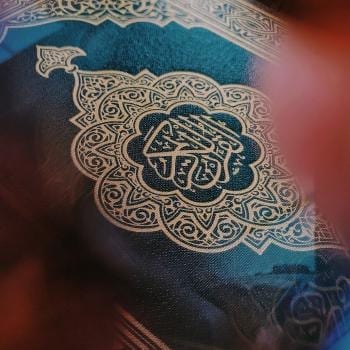
Adolescence is hard to go through. During the pre-teen to young adult years, a person’s body, brain, and environment are constantly changing. They are developing a new awareness of the world and themselves, and this includes questioning the norms and values they were raised with, as well as trying to develop independence and a personal identity. All of this is a healthy part of adolescence, if it is responded to with patience and understanding. Unfortunately, many adults have a tough time relating to teenagers and may struggle to guide them through this phase, especially if the relationship is not strong between the adult and adolescent.
One of the biggest tests for me as an adolescent was being okay with being my own person. As an ethnic and religious minority, the desire can be even stronger to just blend in during this delicate age. Peer pressure and influence can be challenging to overcome. Bullying also occurs. All of this can lead to young people compromising their personal or religious morals and values, and Muslims are no exception.
During this age of confusion and exploration, there are some questions that I now wish I had been asked as a teen. Of course, the person asking me would have had to ask at the right time (rather than just springing them on me out of nowhere, or during a moment of conflict), and would have had to have a strong, trusting, respectful relationship with me. Without all of these factors being present, adolescents are likely to resist their worldview being questioned. The time, place, and relationship should be appropriate and conducive to deep thought and non-judgmental discussion.
Here are 6 questions which I may have benefited from being asked during my adolescent years:
1. What do you believe?
What were my beliefs and values? Did I believe in an afterlife? What about the Qur’an? Did I just call myself a Muslim, or did I truly realize and think about what that meant? Are you only a Muslim because your parents are Muslims, or do you know enough about your religion to feel confident in it? These are tough questions to think about, especially as a teenager who just wants to fit in and be liked by other teenagers.
2. Do your actions reflect what you believe in?
An even tougher question. This one takes courage to reflect on, even as an adult (let alone as an adolescent). It forces a person to confront their own lifestyle and choices, and think about whether there are discrepancies between one’s actions and beliefs. Meaning, is there harmony or dissonance between your inner and outer self? I wish I had been asked (again, in the right setting), whether I felt my actions reflected belief in God and an afterlife.
3. What does peer acceptance mean to you, and why is it important?
This is a tough one to ask without sounding judgmental. Again, these questions should be catalysts for honest and fruitful discussion—not accusations or assumptions. I never thought much about this question as a teen (or perhaps I avoided thinking about it), but now I feel it is an important question to contemplate on.
4. When it comes to conformity, what are your limits? Where do you draw the line and decide to hold your own?
As a Muslim, obviously I believe there are limits to conformity. If someone asks me to do something that goes against my beliefs and values (or if I feel environmental pressures), I will not do it just to gain their acceptance. However, during adolescence I did not think about exactly what my limits were when it came to conformity and social acceptance. It was more of a “go with the flow” type of response, which does not show a healthy or fully developed sense of self. Maybe most teenagers will not have a fully developed sense of self regardless of how much introspection they engage in, but it could be helped along by asking and answering questions like these.
5. If everyone in the world looked exactly the same and had the same possessions, what would make you stand out?
Boonaa Mohammed asked a similar question: “If the whole world were blind, how many people would you impress?” What would differentiate you from those around you? If everyone looked the same and owned the same things, this would mean you could not impress them with your hair, makeup, outfit, car, house, etc. So, what would make you stand out from the crowd? How would your interactions and the way you think about yourself and others change? Would your religion and values (such as kindness, honesty, loyalty, work ethic, etc.) play a different role or hold a different place in your life? I think this question is even more relevant now than it was when I was a teen, due to the widespread use of social media.
6. If you continue to be the same person you are now, where do you see yourself in 10 years?
What will you be like as an adult, if you continue to act the way you do now? Will you be proud of yourself? Will you feel like a strong and independent person? What about your identity as a Muslim—will it feel like you are living up to your potential as a person of faith? Will you feel like you are setting a good example for those who are younger than you? And if your current peers are no longer in your life, how does that affect what you think about your future self?
These are only 6 questions out many which could be asked. To me, it seems like these 6 would have been helpful to be asked as a young Muslim. What are some questions that you wish you had been asked to reflect on as a teen (whether you are a Muslim or not)?
Follow Mostly Muslim on Facebook HERE.
Want your voice to be heard? JOIN OUR TEAM or send your guest submission to [email protected]! Visit the “Contribute to MM” page for more details.












